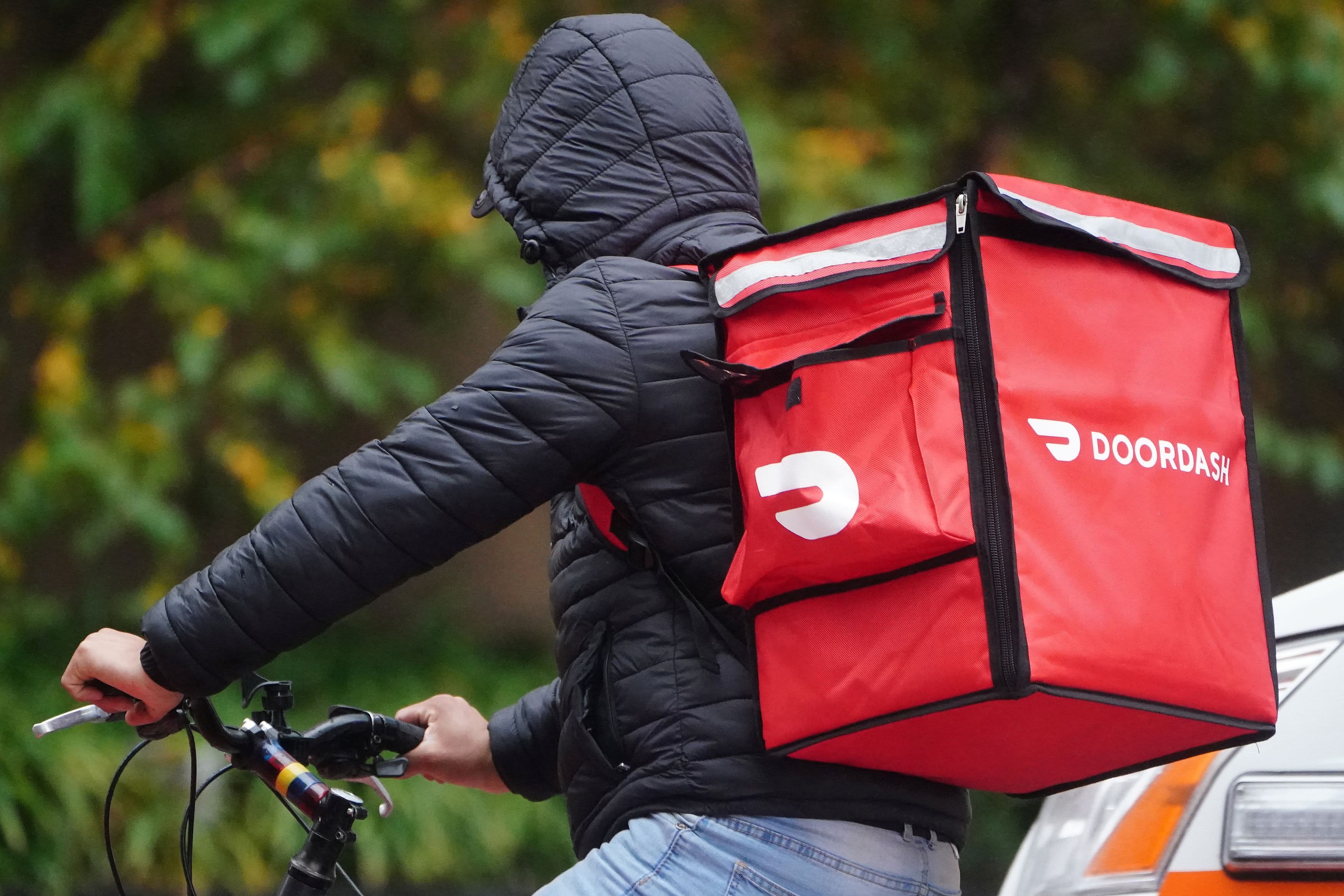
A delivery person for Doordash rides his bike in the rain during the coronavirus disease (COVID-19) pandemic in the Manhattan borough of New York City, New York, U.S., November 13, 2020.
Carlo Allegri | Reuters
Lawmakers in New York City passed several bills on Thursday that seek to improve working conditions and set minimum pay for food delivery workers for companies like Grubhub, DoorDash and Uber Eats.
The move makes New York City the first to pass sweeping legislation that regulates the delivery industry, which has come under increased scrutiny during the pandemic and in the aftermath of Hurricane Ida.
Here are some of the protections in the bills that delivery services will need to abide by:
- Drivers can set a maximum distance per trip they travel.
- Food delivery apps can’t charge couriers for payment of their wages, and they have to pay delivery workers at least once a week.
- Drivers can choose not to accept trips over bridges or in tunnels.
- Apps need to provide the driver, before a trip begins, with the food pickup location, the destination, and the estimated time and distance.
- Delivery services can’t charge drivers or couriers for insulated bags to deliver food.
- Food delivery apps can’t solicit a tip unless they disclose how much is paid to the delivery worker, and whether or not it’s available immediately or paid in cash.
- Apps have to credit gratuities to workers and notify how much was added and if a customer removed the tip and why.
- Applications have to inform the delivery worker of the total compensation, including gratuities, daily.
- Food delivery services need to add a provision in contracts with restaurants that let couriers use bathrooms if the courier is picking up a delivery.
One bill requires the Department of Consumer and Worker Protection to complete a study on food delivery workers and establish rules on the minimum payment required per trip.
“We recognize the unique challenges facing delivery workers in New York City and share the goal of identifying policies that will help Dashers and workers like them,” a DoorDash spokesperson said. “We will continue to work with all stakeholders, including the City Council, to identify ways to support all delivery workers in New York City without unintended consequences.”
Grubhub said it supports the bills.
“These bills are common-sense steps to support the delivery workers who work hard every day for New York’s restaurants and residents,” Grubhub spokesperson Grant Klinzman told CNBC. “Ensuring they receive a living wage and have access to restrooms isn’t just a good idea – it’s the right thing to do.”
Lawmakers in other states have also tried to protect gig workers and customers.
Last month, a California court ruled that Prop 22, a measure approved by a majority vote in November that exempted gig workers from state labor law, was unconstitutional. Prop 22 proposed workers for app-based food delivery and ride-sharing companies should remain contractors, and be entitled to certain benefits and protections, like minimum earnings.
In August, Chicago filed suits against DoorDash and Grubhub for allegedly using unfair business practices and deceiving customers. Both companies called the suits “baseless.”
Meanwhile, Uber, DoorDash and Grubhub recently sued New York City over a bill that limits how much the companies can charge restaurants. In July, DoorDash and Grubhub sued San Francisco after the city introduced a permanent 15% delivery fee cap.
And DoorDash filed a separate suit against New York City earlier this month over a law that requires delivery companies to share more customer data with restaurants.
An Uber spokesperson was not immediately available for comment.
CNBC’s Lauren Feiner contributed to this report.




